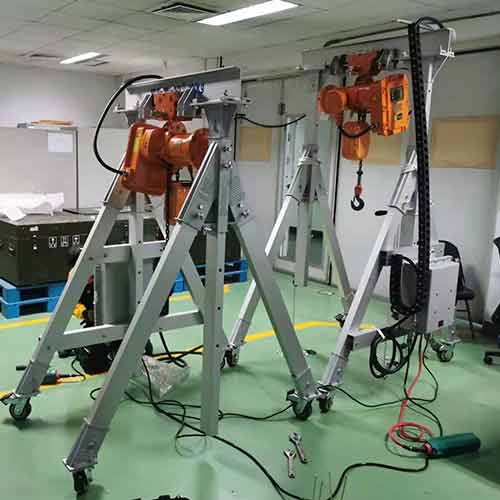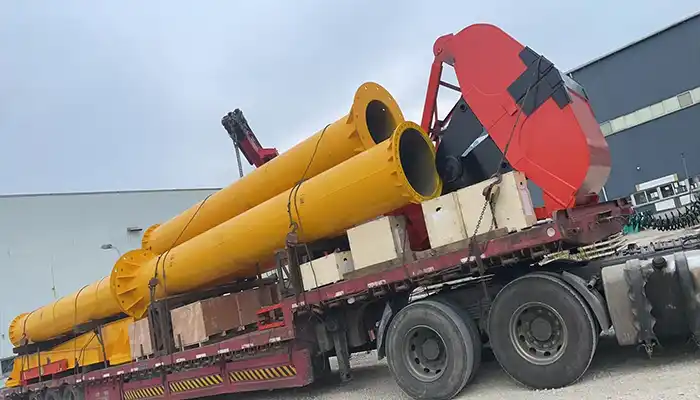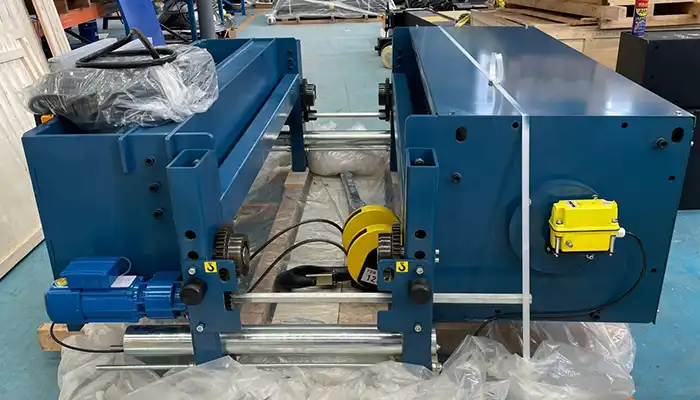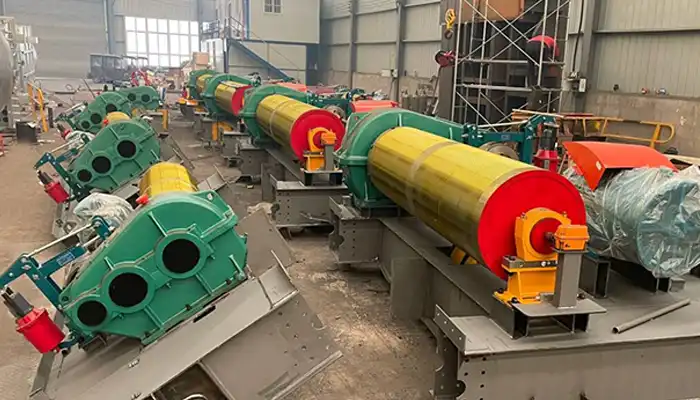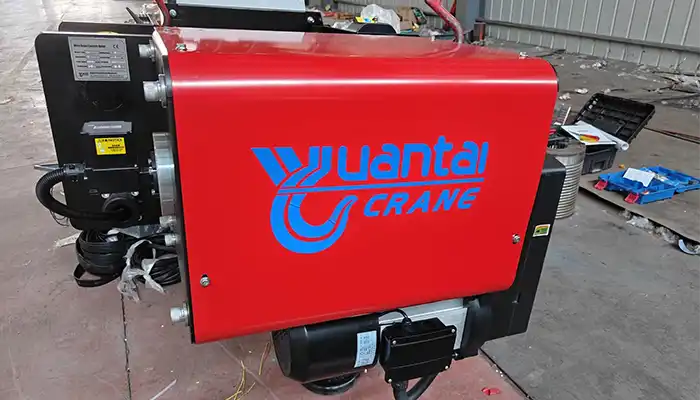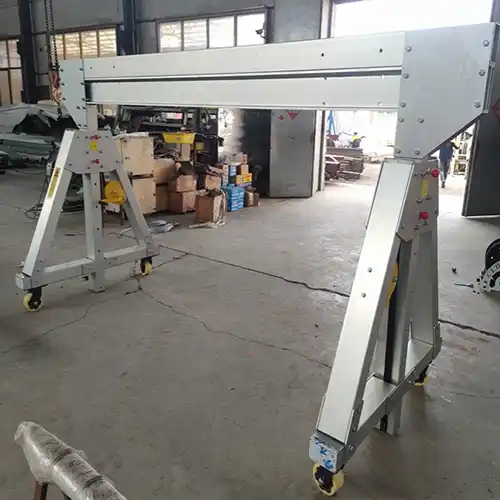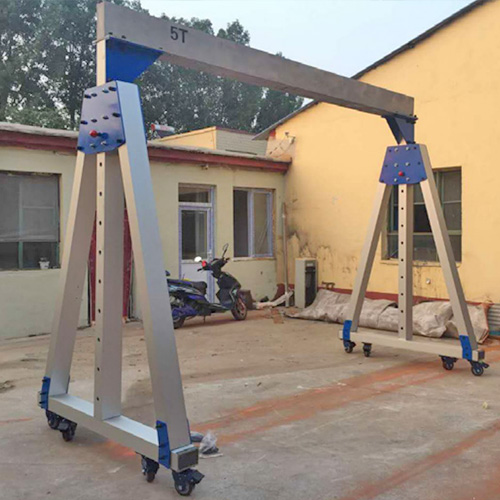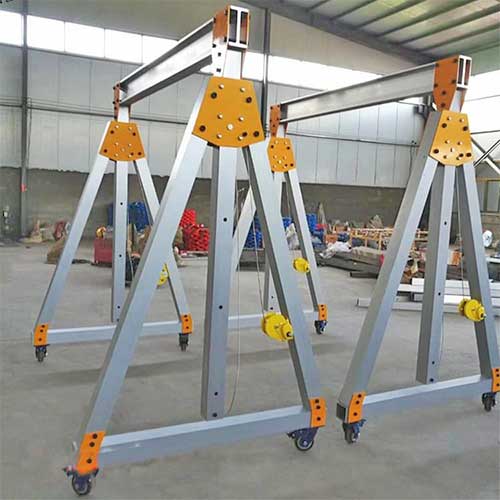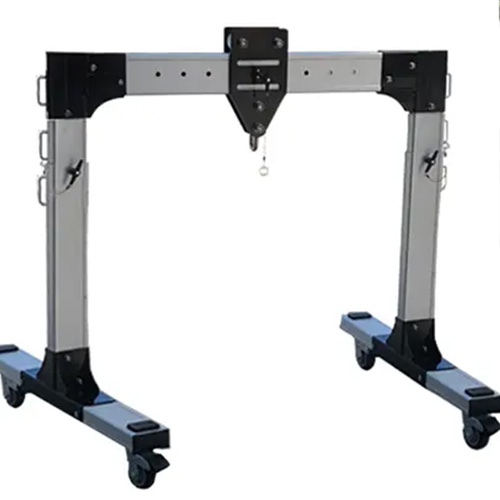Aluminum Gantry Cranes in Food Industry:Hygienic & Anti-corrosion
Food industrial aluminum gantry crane for sale. Aluminum gantry, dust free, clean, corrosion proof for food processing & packaging to ensure food safety.
| Crane type | Portable aluminum gantry crane |
| Crane capacity | 500kg -5 ton |
| Lifting Height | As your request |
| Crane Span | As customer requirement |
Category: Mobile Gantry Crane For Sale
Your Trusted Mobile & Portable Aluminum Gantry Cranes Manufacturer & Supplier
Aluminum Gantry Cranes in Food Industry:Hygienic & Anti-corrosion
Portable Aluminum Gantry, Dust Free, Clean, Corrosion Proof for Food Processing & Packaging
Food industrial aluminum gantry crane for sale. Aluminum gantry, dust free, clean, corrosion proof for food processing & packaging to ensure food safety.
Aluminum Gantry Cranes in the Food Industry: Hygienic and Corrosion-Resistant Solutions
In the ever-demanding and highly regulated world of the food industry, maintaining hygiene and ensuring food safety are paramount. One key element that often goes unnoticed but plays a pivotal role in upholding these standards is the use of aluminum gantry cranes. These versatile and corrosion-resistant solutions are indispensable in food processing and packaging facilities, where cleanliness and product integrity are non-negotiable.
When we think of the food industry, we often focus on the rigorous quality control processes, the state-of-the-art machinery, and the highly trained personnel that ensure our food is safe to consume. However, behind the scenes, something as seemingly simple as a crane can significantly impact the hygiene and safety of the products we find on our plates.
Aluminum gantry cranes, often referred to as aluminum lifting gantries, are engineered to excel in environments where hygiene is of the utmost importance. In this comprehensive guide, we will explore how these cranes are employed in the food industry, their corrosion-resistant properties, and the vital role they play in maintaining food safety.
From the transportation of ingredients in food processing plants to the safe handling of packaged goods in the final stages of production, aluminum gantry cranes have earned their place as unsung heroes, contributing to the safety and quality of the food we consume. This article sheds light on the indispensable nature of these cranes in ensuring that your next meal is not only delicious but also safe to savor.
Overview of Aluminum Gantry Cranes
Before delving into their applications in the food industry, let's take a closer look at aluminum gantry cranes. These versatile lifting solutions are characterized by their lightweight yet durable construction. They are engineered to meet the stringent demands of hygienic environments, making them the perfect choice for the food industry.
- Construction: Aluminum gantry cranes are crafted from high-quality aluminum, renowned for its lightweight properties. This construction material not only ensures their mobility but also plays a crucial role in their corrosion resistance, a key feature when hygiene is paramount.
- Corrosion-Resistant Properties: The corrosion-resistant nature of aluminum is a standout feature. This quality makes these cranes impervious to the corrosive effects of humidity and the frequent cleaning procedures necessary in food processing and packaging facilities. Their ability to withstand these challenges is a testament to their suitability for environments where cleanliness is non-negotiable.
The lightweight and corrosion-resistant attributes of aluminum gantry cranes lay the foundation for their critical role in the food industry. Now, let's explore how these cranes are applied to maintain the highest standards of hygiene and food safety in this demanding sector.
Types of Aluminum Gantry Cranes used In Food Processing industry
In the food processing industry, several types of aluminum gantry cranes are commonly used to meet specific material handling needs and maintain high standards of hygiene and safety. Here are some of the types of aluminum gantry cranes used in the food processing industry:
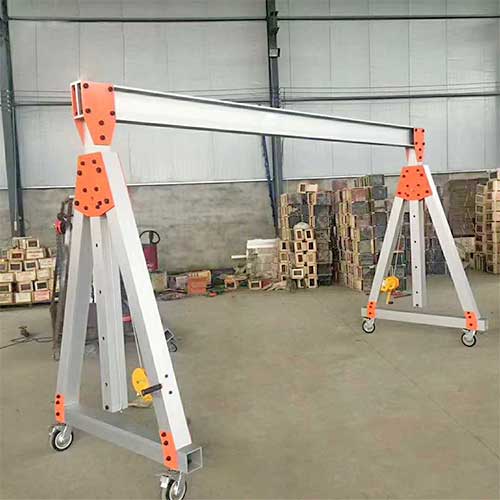
Portable Aluminum Gantry Cranes:
- Features: These gantry cranes are designed for easy mobility, making them ideal for applications where materials need to be moved to different locations within the facility.
- Benefits: Portability allows for flexibility in material handling. They are lightweight, easy to assemble, and can be moved as needed.
- Typical Applications: Used for handling ingredients, equipment, and finished products in various areas of food processing facilities.
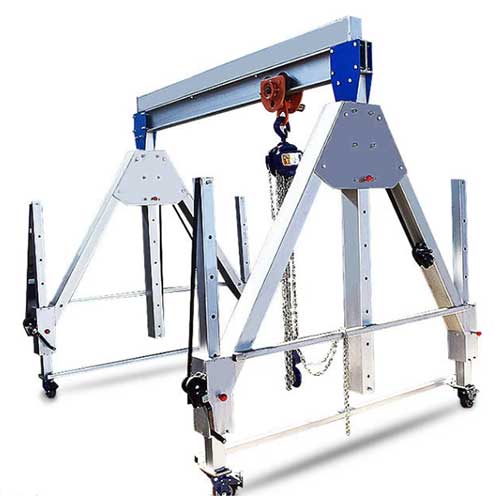
Adjustable Height Aluminum Gantry Cranes:
- Features: These gantry cranes have adjustable leg heights, which make them versatile for handling materials of varying sizes and working at different heights.
- Benefits: The ability to adjust the crane's height ensures precise material handling in food processing and packaging processes.
- Typical Applications: Employed in settings with changing load requirements, where materials of different sizes need to be moved efficiently.
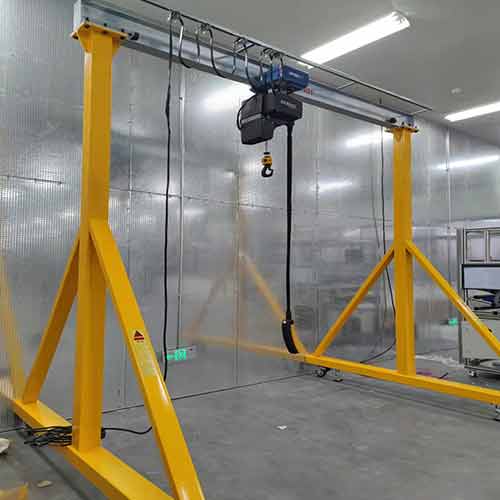
Clean Room Aluminum Gantry Cranes:
- Features: Designed to meet strict cleanliness standards, these cranes are non-contaminating and resistant to corrosion, making them suitable for controlled environments.
- Benefits: Clean room gantry cranes help maintain hygiene and product integrity in food processing facilities, preventing contamination.
- Typical Applications: Used in clean rooms and laboratories within the food industry where maintaining a sterile environment is critical.

Explosion-Proof Aluminum Gantry Cranes:
- Features: These cranes are designed to prevent the risk of sparking in potentially explosive environments.
- Benefits: Explosion-proof gantry cranes ensure safety in areas where there is a risk of flammable materials.
- Typical Applications: Used in facilities handling flammable or explosive food products or ingredients, such as grain mills.
Each type of aluminum gantry crane in the food processing industry serves specific purposes while maintaining the required levels of hygiene, safety, and efficiency. The choice of crane type depends on the particular material handling needs and environmental conditions within the facility.
Applications in Food Processing Facilities
Now that we've gained an understanding of the construction and corrosion-resistant properties of aluminum gantry cranes, let's dive into their practical applications within food processing facilities.
- Handling Ingredients with Precision: In food processing, precision is of the essence. Ingredients must be measured, mixed, and transported with utmost accuracy. Aluminum gantry cranes, with their versatile load-bearing capacity, play a pivotal role in this phase. Whether it's the precise positioning of raw materials or the controlled transfer of components in the production process, these cranes ensure that the formula for your favorite food product is followed to the letter.
- Equipment Maintenance and Mobility: Food processing facilities rely on a range of specialized equipment, from mixers to slicers. Maintenance and equipment mobility are areas where aluminum gantry cranes shine. They provide the means to safely access and service these machines, enhancing their longevity and reliability. Furthermore, their mobility allows for swift reconfiguration of the production line, adapting to the evolving demands of the food processing process.
- Safe Handling of Finished Products: After meticulous processing, the final products must be handled with care and precision. Aluminum gantry cranes excel in the safe movement of finished goods. Whether it's lifting and loading packaged food items onto pallets or transporting them for storage, these cranes ensure that food products maintain their quality and integrity throughout the production cycle.
- Ensuring Hygiene and Food Safety: In an industry where hygiene and food safety are non-negotiable, aluminum gantry cranes serve as guardians of these standards. Their corrosion-resistant properties mean that they can be cleaned and sanitized without the risk of contamination or deterioration. This is crucial for ensuring that food products remain untainted and safe for consumption.
In summary, aluminum gantry cranes, including aluminum lifting gantries, are the unsung heroes of food processing facilities. They facilitate the precision handling of ingredients, equipment maintenance, and the safe transport of finished products. Their corrosion-resistant nature further ensures that hygiene and food safety standards are upheld throughout the food production process, from start to finish.
Industrial sectors of Aluminum gantry cranes in Food Processing
Bakeries:
- Aluminum Gantry Designs and Configurations: Aluminum gantry cranes used in bakeries are typically compact and designed for easy maneuverability within limited spaces.
- Typical Tonnages: These cranes often have load capacities ranging from 1 to 2 tons.
- Loads Handled and Applications: They are utilized for the safe handling and transport of ingredients such as flour, sugar, and other baking materials. They also play a crucial role in moving baking equipment like mixers, ovens, and finished bakery products, ensuring efficient production processes.
Dairies and Cheese Production:
- Aluminum Gantry Designs and Configurations: Gantries in dairy facilities are designed to withstand potential moisture and are often equipped with corrosion-resistant features.
- Typical Tonnages: Load capacities may range from 1 to 5 tons.
- Loads Handled and Applications: Aluminum gantry cranes are used for transporting milk containers, cheese vats, and dairy processing equipment. Their mobility facilitates the movement of large containers, ensuring dairy operations run smoothly.
Meat Processing and Packing Plants:
- Aluminum Gantry Designs and Configurations: These cranes are built with materials resistant to potential exposure to blood and meat by-products.
- Typical Tonnages: Load capacities generally range from 2 to 5 tons.
- Loads Handled and Applications: They are instrumental in transporting meat cuts, carcasses, and meat processing machinery, ensuring meat processing and packing operations are efficient and hygienic.
Seafood Processing Facilities:
- Aluminum Gantry Designs and Configurations: These cranes are equipped with corrosion-resistant materials to withstand the corrosive nature of marine environments.
- Typical Tonnages: Load capacities can vary, with many designed for loads up to 2 tons.
- Loads Handled and Applications: Aluminum gantry cranes assist in the safe and efficient handling of seafood products, equipment, and materials. They are essential for ensuring seafood processing operations run smoothly and maintain food safety standards.
Beverage Manufacturing:
- Aluminum Gantry Designs and Configurations: These cranes are designed for efficiency and often come with adjustable features to accommodate different container sizes.
- Typical Tonnages: Load capacities range from 1 to 3 tons.
- Loads Handled and Applications: In beverage manufacturing, aluminum gantry cranes are used for moving containers, barrels, and packaging materials. They facilitate the smooth flow of production and packaging processes.
Candy and Confectionery Manufacturing:
- Aluminum Gantry Designs and Configurations: These cranes have hygienic design features and often come with smooth surfaces for easy cleaning.
- Typical Tonnages: Load capacities are usually in the range of 1 to 2 tons.
- Loads Handled and Applications: Aluminum gantry cranes are employed for handling raw materials such as sugar and chocolate, as well as finished confectionery products. They help maintain product integrity and hygiene in the candy manufacturing process.
Frozen Food Production:
- Aluminum Gantry Designs and Configurations: Gantry cranes in frozen food production facilities are designed to withstand cold temperatures and moisture.
- Typical Tonnages: Load capacities may range from 1 to 3 tons.
- Loads Handled and Applications: These cranes are used for the efficient movement of frozen food products and packaging materials, ensuring frozen food processing operations are both productive and hygienic.
Canning and Preserving Plants:
- Aluminum Gantry Designs and Configurations: Gantry cranes in canning and preserving plants are designed to handle containers and canning equipment.
- Typical Tonnages: Load capacities are often in the range of 2 to 5 tons.
- Loads Handled and Applications: They assist in the handling of canned goods, raw ingredients, and canning machinery, ensuring the canning and preserving processes run smoothly and maintain product quality.
Grain and Flour Mills:
- Aluminum Gantry Designs and Configurations: These cranes are designed for efficient material handling within the mill environment.
- Typical Tonnages: Load capacities can vary but often range from 1 to 3 tons.
- Loads Handled and Applications: Aluminum gantry cranes handle sacks of grain, milling equipment, and flour products, facilitating the flow of operations in grain and flour mills.
Fruit and Vegetable Processing:
- Aluminum Gantry Designs and Configurations: Gantry cranes in fruit and vegetable processing facilities are designed for cleanliness and efficient handling.
- Typical Tonnages: Load capacities typically range from 1 to 3 tons.
- Loads Handled and Applications: They assist in the movement of produce, processing equipment, and packaging materials, ensuring the efficient processing and packaging of fruits and vegetables.
Food Packaging Facilities:
- Aluminum Gantry Designs and Configurations: Gantry cranes used in food packaging are designed for precise load handling and material transport.
- Typical Tonnages: Load capacities are usually in the range of 1 to 3 tons.
- Loads Handled and Applications: Aluminum gantry cranes are integral in food packaging operations, where they efficiently transfer packaged goods for labeling, palletizing, and quality control, ensuring smooth packaging processes.
Nut and Snack Processing:
- Aluminum Gantry Designs and Configurations: These cranes have features that support the efficient handling of snack products and ingredients.
- Typical Tonnages: Load capacities often range from 1 to 2 tons.
- Loads Handled and Applications: They assist in handling nuts, snacks, and equipment for processing and packaging, ensuring the snack processing operations are efficient and hygienic.
Spice and Seasoning Manufacturing:
- Aluminum Gantry Designs and Configurations: Gantry cranes in spice and seasoning manufacturing are designed to meet cleanliness standards.
- Typical Tonnages: Load capacities are usually in the range of 1 to 2 tons.
- Loads Handled and Applications: These cranes handle spices, herbs, and seasoning products, ensuring the efficiency of the manufacturing process while maintaining product quality.
Egg Processing Plants:
- Aluminum Gantry Designs and Configurations: These cranes are designed to handle egg containers and processing equipment efficiently.
- Typical Tonnages: Load capacities often range from 1 to 2 tons.
- Loads Handled and Applications: Aluminum gantry cranes help transport egg containers and processing equipment in egg processing facilities, ensuring the smooth flow of operations while maintaining product integrity.
Sauce and Condiment Production:
- Aluminum Gantry Designs and Configurations: These cranes are designed to meet cleanliness standards and facilitate precise load handling.
- Typical Tonnages: Load capacities typically range from 1 to 2 tons.
- Loads Handled and Applications: Aluminum gantry cranes assist in handling containers, packaging materials, and sauce production equipment, ensuring the efficient production of sauces and condiments while maintaining product quality.
Breweries and Distilleries:
- Aluminum Gantry Designs and Configurations: Gantry cranes in beverage production facilities are designed to handle barrels and kegs efficiently.
- Typical Tonnages: Load capacities can vary, with many designed for loads up to 3 tons.
- Loads Handled and Applications: In breweries and distilleries, these cranes are used for moving barrels, kegs, and brewing equipment, facilitating the production processes and maintaining product quality.
Pet Food Manufacturing:
- Aluminum Gantry Designs and Configurations: These cranes are designed for efficient material handling within the pet food manufacturing environment.
- Typical Tonnages: Load capacities may range from 1 to 3 tons.
- Loads Handled and Applications: Aluminum gantry cranes assist in handling pet food ingredients, packaging materials, and finished products, ensuring efficient pet food production while maintaining product quality.
Cereal and Breakfast Food Production:
- Aluminum Gantry Designs and Configurations: These cranes are designed for efficient material handling and product transport within cereal and breakfast food production facilities.
- Typical Tonnages: Load capacities typically range from 1 to 3 tons.
- Loads Handled and Applications: Aluminum gantry cranes are used for the movement of cereal ingredients, equipment, and packaging materials, ensuring the efficient production of cereal and breakfast foods while maintaining product quality.
Aluminum gantry cranes prove to be versatile and reliable in various food processing sectors, contributing to the efficiency, hygiene, and product integrity within these facilities. Their corrosion-resistant features and adaptability make them a valuable asset in the food industry.
The Significance of Hygiene
The food industry operates under a stringent set of guidelines and regulations, and at the heart of these standards lies the paramount importance of hygiene. Maintaining cleanliness and food safety is non-negotiable, and even the smallest oversight can have severe consequences. This is where aluminum gantry cranes, including their specialized counterparts known as aluminum lifting gantries, take center stage.
Hygiene: A Cornerstone of the Food Industry
Hygiene in the food industry is not merely a preference; it's a cornerstone. The consequences of neglecting hygiene can be severe, resulting in contaminated products, compromised health, and reputational damage to food companies. Maintaining a clean and safe environment is not just a legal requirement; it's an ethical responsibility.
Aluminum Gantry Cranes: Enablers of Hygiene
Aluminum gantry cranes actively contribute to the pursuit of hygiene and food safety within the food industry. Their significance lies in their design, which minimizes the risk of contamination. Here's how they make a difference:
- Corrosion Resistance: Aluminum, the primary material in these cranes, is naturally corrosion-resistant. This attribute is a game-changer in environments where frequent cleaning and exposure to moisture are the norm. Unlike traditional cranes that may be susceptible to rust and degradation, aluminum gantry cranes stand resilient.
- Smooth Surfaces: These cranes feature smooth and cleanable surfaces. Unlike some alternatives with nooks and crannies that can trap dirt and bacteria, aluminum gantry cranes are designed for easy cleaning and sanitation. They leave no room for hidden contaminants.
- Mobility for Cleaning: The mobility of aluminum gantry cranes ensures that every inch of the production area can be accessed for thorough cleaning. This is vital in an industry where cleanliness extends beyond aesthetics to the very safety of the products being manufactured.
In summary, aluminum gantry cranes, including their specialized counterparts like aluminum lifting gantries, are champions of hygiene in the food industry. Their corrosion resistance, cleanable surfaces, and mobility for cleaning are attributes that actively contribute to maintaining a clean and safe environment. These cranes aren't just tools; they are guardians of food safety and the well-being of consumers.
Resistance to Corrosion in Challenging Environments
In the demanding world of food processing, where sanitation and food safety are top priorities, the resistance to corrosion is a paramount concern. Corrosion can compromise the structural integrity of equipment and pose a contamination risk. Aluminum gantry cranes, with their specialized materials and protective coatings, stand as stalwart defenders against this persistent threat.
Specialized Materials: The Armor of Corrosion Resistance
At the core of an aluminum gantry crane's corrosion resistance lies its primary construction material - aluminum. Unlike some other metals that are susceptible to rust and deterioration, aluminum boasts inherent resistance to corrosion. This property is a game-changer in environments where exposure to moisture, cleaning agents, and the risk of rust are daily challenges.
Additionally, the aluminum used in these cranes is often of high quality, further enhancing its corrosion-resistant attributes. It ensures that the crane can endure the rigors of food processing without succumbing to rust or decay, guaranteeing a long and reliable service life.
Protective Coatings: Shields Against Environmental Assault
To reinforce their defenses against corrosion, aluminum gantry cranes often feature protective coatings. These coatings act as shields, adding an extra layer of protection against the corrosive effects of the environment. They are carefully selected and applied to ensure compatibility with food processing standards and regulations.
The protective coatings not only serve to preserve the crane's structural integrity but also ensure that no contaminants leach from the crane's surfaces. In an industry where product purity is paramount, these coatings are a vital component of the hygiene and safety measures in place.
Ensuring Food Safety Through Corrosion Resistance
The corrosion-resistant features of aluminum gantry cranes, including their specialized materials and protective coatings, safeguard the crane against corrosion in challenging food processing environments. They ensure the crane's longevity, structural integrity, and the prevention of contamination risks, ultimately contributing to food safety. These features make aluminum gantry cranes not just reliable equipment but essential guardians of the quality and safety of the food we consume.
Applications in Food Packaging Facilities
As we continue to explore the diverse applications of aluminum gantry cranes in the food industry, let's shine a spotlight on their crucial role in food packaging facilities. In these environments, where efficiency and precision are paramount, aluminum gantry cranes, including specialized aluminum lifting gantries, prove to be indispensable.
- Precision Handling of Packaged Goods: Food packaging is a finely tuned process where precision is key. The correct positioning and movement of packaged goods is essential to maintain the quality and integrity of the products. Aluminum gantry cranes offer a solution to this challenge. With their versatile load-bearing capacity, they can safely lift, lower, and transport packaged goods with precision, reducing the risk of damage or contamination.
- Swift and Efficient Operations: In the fast-paced world of food packaging, time is of the essence. Aluminum gantry cranes provide the speed and efficiency needed to meet production demands. They allow for the quick and smooth transfer of packaged goods to the next stage of the process, whether it's palletizing, labeling, or quality control. Their mobility ensures that they can be readily deployed where they are needed, optimizing workflow.
- Maintaining Hygiene: Just as in food processing, maintaining a hygienic environment is a top priority in food packaging. Aluminum gantry cranes are designed with this in mind. Their corrosion-resistant properties make them suitable for frequent cleaning and sanitization without the risk of contamination. This attribute is vital in ensuring that packaged food products remain untainted and safe for consumers.
- Versatility and Adaptability: Food packaging facilities often deal with a wide range of products, each with its own unique packaging requirements. Aluminum gantry cranes are versatile and can be adapted to handle different types of packaged goods. Their adjustability and mobility mean they can be easily configured to suit the specific needs of the packaging line, ensuring a smooth and efficient operation.
In summary, aluminum gantry cranes, including aluminum lifting gantries, play a pivotal role in food packaging facilities. They enable the precision handling of packaged goods, contribute to efficient operations, maintain hygiene, and offer the versatility and adaptability needed to meet the diverse requirements of the food packaging process. These cranes are the unsung heroes behind the scenes, ensuring that the food products we receive are not only of the highest quality but also safe for consumption.
Compliance with Food Safety Standards
In the food industry, compliance with stringent regulatory requirements and food safety standards is not an option but a necessity. The consequences of failing to meet these standards can be severe, ranging from product recalls to legal repercussions and reputational damage. Food processing and packaging facilities are tasked with upholding the highest levels of hygiene and safety. Aluminum gantry cranes, especially aluminum lifting gantries, play a crucial role in facilitating compliance with these essential standards.
Stringent Regulatory Requirements
Food safety standards and regulations in the food industry are designed to protect consumers from health risks associated with contaminated or adulterated food products. These requirements cover a broad spectrum of aspects, including but not limited to:
- Hygiene: Regulations mandate strict cleanliness and sanitation practices in all food processing and packaging operations. This includes regular cleaning and disinfection of equipment and surfaces.
- Product Integrity: Standards ensure that food products are not compromised in any way during processing, packaging, and transportation. This encompasses factors such as maintaining the correct temperature and preventing contamination.
- Traceability: Regulations often require that food products can be traced back to their source in the event of a safety concern. This traceability ensures quick response and containment of potential issues.
- Labeling and Packaging: Standards dictate that product labels must accurately reflect the contents and be tamper-evident. Packaging materials should not pose a risk to the product's safety or quality.
The Role of Aluminum Gantry Cranes in Compliance
Aluminum gantry cranes contribute to compliance with food safety standards in several ways:
- Hygiene: The corrosion-resistant properties of aluminum gantry cranes make them suitable for frequent cleaning and sanitization. They don't harbor contaminants, ensuring a clean and safe environment.
- Product Integrity: These cranes facilitate the precise handling of ingredients, equipment, and finished products. Their corrosion-resistant design prevents rust, which can compromise product integrity.
- Efficiency: Aluminum gantry cranes are essential in maintaining an efficient production and packaging process, reducing the time products are exposed to potential contaminants.
- Mobility: Their mobility allows for easy reconfiguration of the workspace, enabling compliance with changing food safety requirements.
In conclusion, aluminum gantry cranes, including aluminum lifting gantries, are essential tools in upholding food safety standards. They contribute to hygiene, product integrity, efficiency, and compliance with stringent regulatory requirements, ensuring that the food produced and packaged meets the highest standards of safety and quality. These cranes are more than equipment; they are vital components of the food safety ecosystem.
Advantages of Aluminum Gantry Cranes in food industry
The food industry is a complex, high-stakes environment where every detail matters. In this setting, the use of aluminum gantry cranes, including specialized aluminum lifting gantries, offers a multitude of advantages that go beyond simple material handling. These cranes are integral in ensuring food safety, minimizing contamination risks, and optimizing operational efficiency.
- Corrosion Resistance: One of the standout advantages of aluminum gantry cranes is their corrosion resistance. In the food industry, where frequent cleaning and exposure to moisture are the norm, corrosion can be a major concern. Aluminum's natural resistance to rust and degradation ensures that these cranes can withstand the harshest cleaning agents and environmental conditions without compromising structural integrity.
- Hygienic Design: Aluminum gantry cranes are designed with hygiene in mind. Their smooth and cleanable surfaces leave no room for hidden contaminants, making them ideal for use in environments where cleanliness is a top priority. The absence of nooks and crannies that can trap dirt and bacteria is a significant advantage in food processing and packaging facilities.
- Mobility for Cleaning: The mobility of aluminum gantry cranes ensures that every corner of the workspace can be accessed for thorough cleaning and sanitation. This feature is vital in an industry where cleanliness is not just about aesthetics but also about the safety and quality of the products being manufactured.
- Precision Handling: Food processing and packaging demand precision in handling ingredients, equipment, and finished products. Aluminum gantry cranes provide this precision, reducing the risk of damage or contamination. They ensure that products are moved swiftly and smoothly without compromising their integrity.
- Efficiency: The fast-paced world of the food industry requires swift and efficient operations. Aluminum gantry cranes enable quick and smooth transfers of ingredients and packaged goods to the next stages of the production process. Their mobility ensures they can be readily deployed where needed, optimizing workflow and reducing downtime.
- Compliance with Food Safety Standards: The use of aluminum gantry cranes helps food processing and packaging facilities meet stringent food safety standards and regulatory requirements. Their design and corrosion-resistant properties align with the industry's hygiene and safety goals, providing a crucial link in the chain of food safety.
In conclusion, aluminum gantry cranes, including aluminum lifting gantries, offer a comprehensive set of advantages that make them indispensable in the food industry. They are guardians of food safety, optimizing efficiency while minimizing contamination risks. These cranes are more than tools; they are essential partners in ensuring that the food we consume is not only delicious but also safe and of the highest quality.
Conclusion
In the complex world of the food industry, where every aspect of hygiene and safety is meticulously scrutinized, aluminum gantry cranes, with a special mention of aluminum lifting gantries, emerge as unsung heroes. These versatile, corrosion-resistant solutions play a pivotal role in upholding hygiene, ensuring food safety, and optimizing operational efficiency in food processing and packaging facilities.
From their corrosion resistance that withstands the harshest cleaning agents to their hygienic design that leaves no room for hidden contaminants, aluminum gantry cranes are essential components of the food safety ecosystem. Their mobility ensures that every corner of the workspace can be accessed for thorough cleaning, and their precision handling minimizes the risk of damage or contamination. These cranes are not just tools; they are guardians of the food products we consume.
In an industry where compliance with stringent regulatory requirements and food safety standards is paramount, aluminum gantry cranes are the linchpin of adherence. They facilitate compliance with these essential standards, ensuring that the food produced and packaged meets the highest levels of safety and quality.
In summary, aluminum gantry cranes, and particularly aluminum lifting gantries, are not just material handling equipment; they are integral to the food industry's ability to deliver products that are not only delicious but also safe and of the highest quality. Their advantages are far-reaching, impacting every aspect of food processing and packaging. As we savor our next meal, we can rest assured that behind the scenes, aluminum gantry cranes are working diligently to maintain the standards of excellence we expect from the food industry.
Main Projects
Related Products
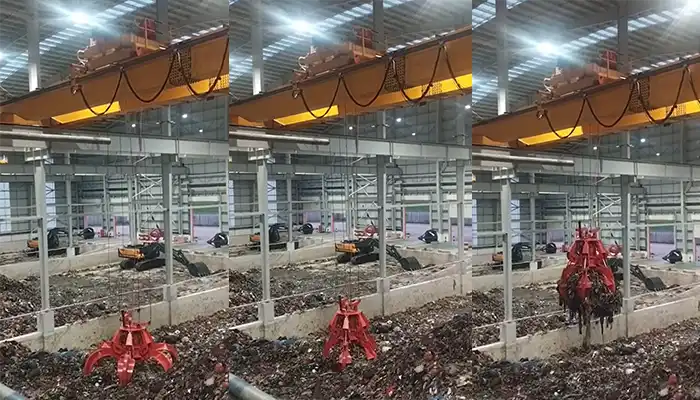
Supplied three grab bucket crane kits to Indonesia, enhancing garbage handling efficiency with high load capacity and reliable performance.
Free consultation to Confirm Parameters & Specifications and Get
Latest Crane Price & Crane Rate.
- Types of overhead cranes : _______?
- Optional: Overhead travelling crane, goliath gantry crane,Slewing jib crane, Single girder or double girder crane,small portable crane or kbk crane, etc.
- Capacity of overhead crane: _______?
- Optional: 0.25ton, 0.5 ton, 1 ton, 2 ton, 3ton, 5 ton, 10 ton,15ton, 20ton, 25 ton, 30ton,35ton, up to 550ton, etc.
- Crane span & lifting height : _______?
- Crane travelling length : _____?
- Control of overhead crane:_______?
- Optional: pendant/ remote/cabin control
- Voltage supply of overhead crane:_____?
- Eg,: 380V50/60HZ,3Phase or others,etc.
- Application/usage of crane:_______?
- Eg,: Steel mill, ,injection mold, cement,stone, concrete,granite, general manufacturing, etc.
Just leave a message via the contact form and our hoist and crane engineer will contact you with in 24working hours.
Get In Touch
